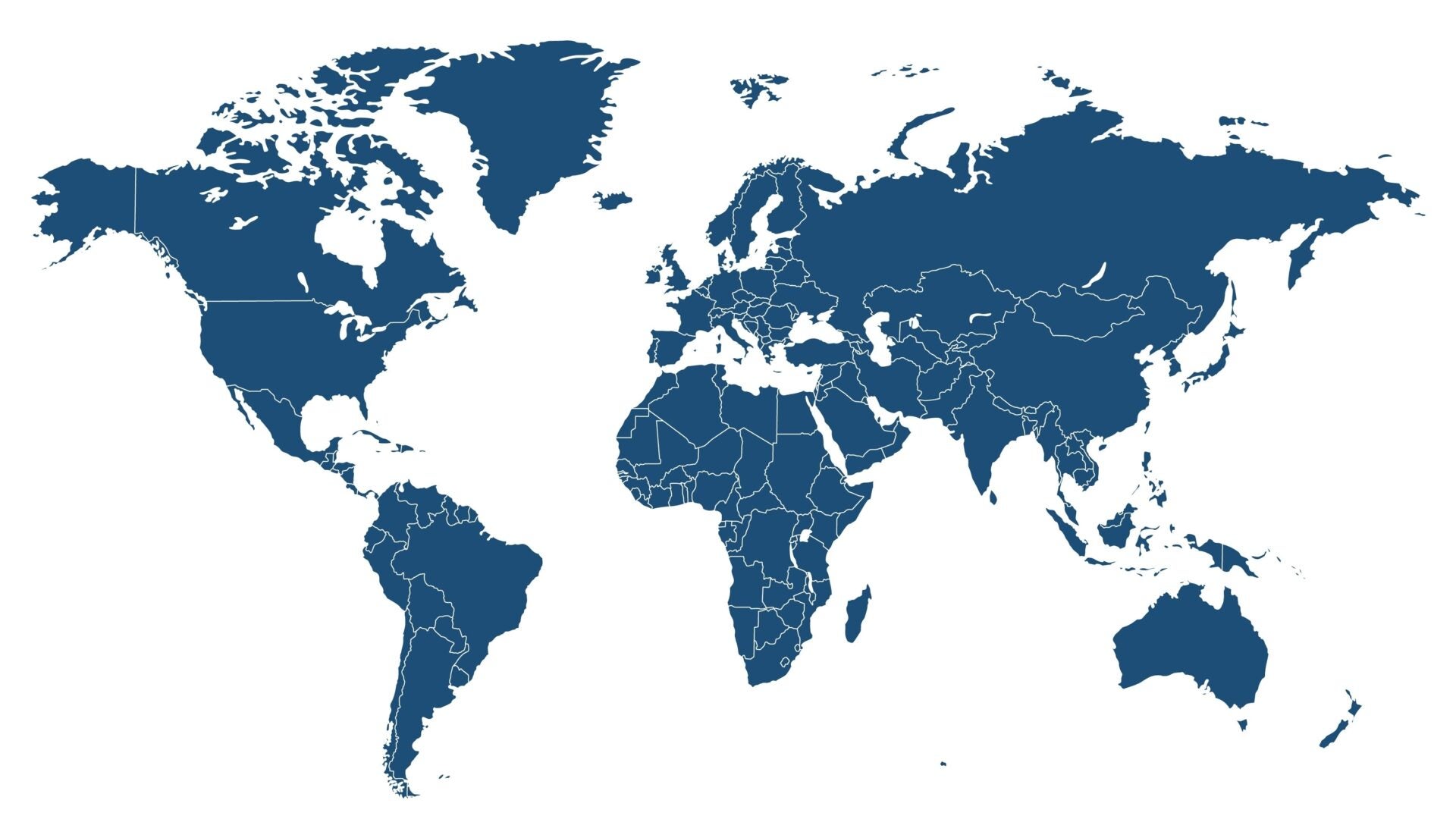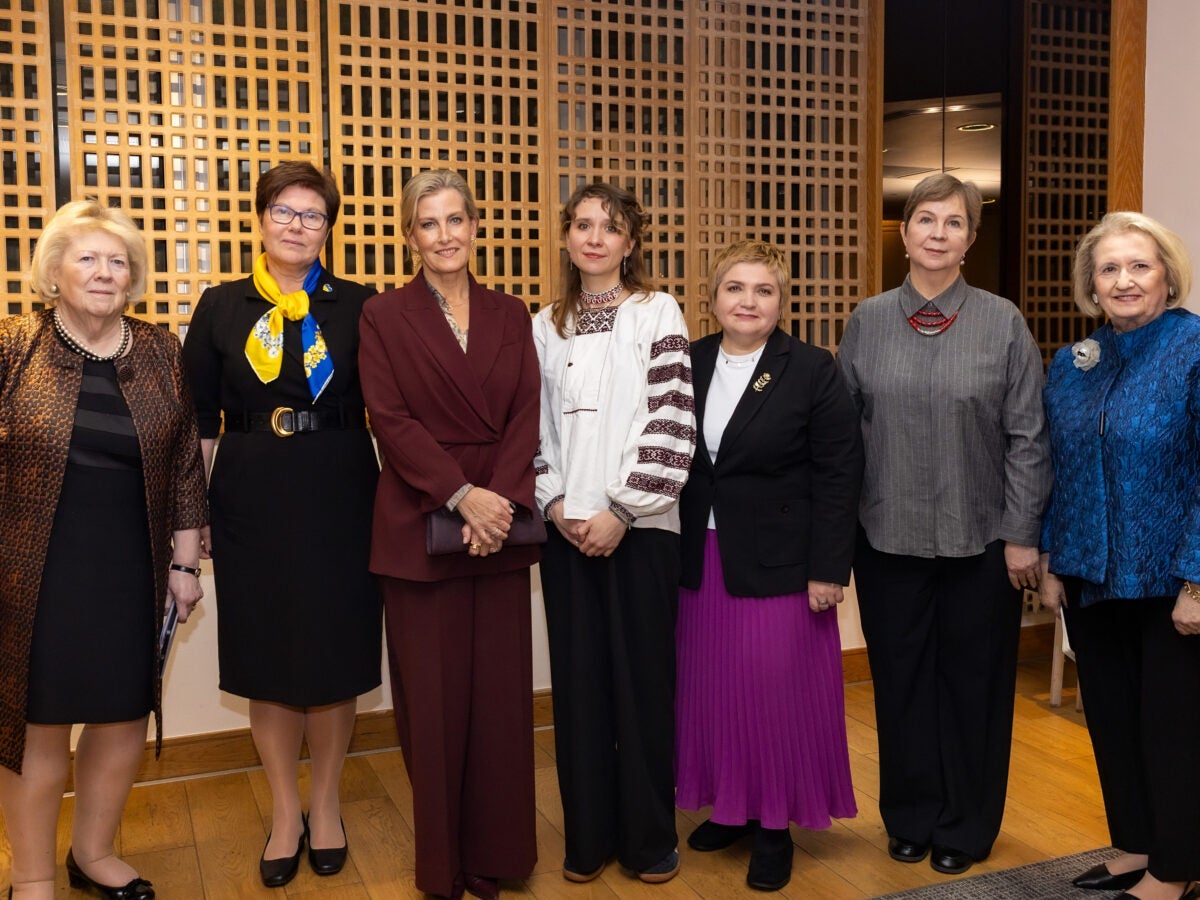Women, Peace and Security Conflict Tracker: March Updates

Our Women, Peace and Security Conflict Tracker combines real-time data points and original analysis to offer gender-sensitive insight into conflict dynamics across 25 countries. The WPS Conflict Tracker is updated monthly to reflect developments for women’s participation, protection, prevention, and relief and recovery. This blog highlights select updates from March. To see the complete analysis across all 25 countries monitored, please visit the WPS Conflict Tracker website.
Spotlight: The third anniversary of the Russian war of aggression in Ukraine
As Ukraine enters the third year of Russia’s full-scale invasion, more than 1.8 million women have been forced to flee their homes and 6.7 million women require humanitarian assistance. Ukrainian women continue to bear the war’s greatest burden while demonstrating remarkable resilience and leadership. Women have taken on combat roles in the military and filled positions in traditionally male-dominated industries, helping to sustain the wartime economy. Additionally, women-led organizations have spearheaded humanitarian relief efforts, documented war crimes, and advocated for inclusive peace processes. Ukrainian survivors of conflict-related sexual violence recently submitted an official letter to the UN Secretary-General demanding that Russia be added to the UN List of Shame for perpetrating sexual violence.
Yet, recent talks—such as the February 18, 2025, Riyadh meeting between American and Russian delegations—excluded Ukrainian representation, including voices of women and civil society leaders. As efforts to end Russia’s war of aggression on Ukraine persist, ensuring women’s continued leadership and participation in security, governance, and reconstruction efforts remains essential to protect Ukraine’s future. Additionally, a lack of concrete or tangible security guarantees from the US could leave Ukrainian women and girls at urgent risk of displacement, sexual violence, and death.
Spotlight: Cuts to US foreign aid
The United States has slashed 83 percent of USAID contracts and 30 percent of State Department foreign-aid related grants—a step the UN Secretary-General has said will make the world “less healthy, less safe, and less prosperous.” US cuts occur alongside reductions of overseas development aid by other countries, including the UK, Germany, and the Netherlands. These cuts dramatically harm women and girls around the world who rely on US foreign aid for lifesaving services, protection, and support accessing vital education and training—particularly in conflict-affected settings. For instance, according to memos released by USAID staff, 16.8 million pregnant women will now likely be denied life-saving care. US funding was also vital for supporting women’s capacity building and participation in both formal and informal peace processes. Additionally, cuts to US aid undermine broader efforts to support democratic institutions and the rule of law.
Virtually every country monitored by the WPS Conflict Tracker has been severely impacted by US foreign aid cuts. In Myanmar, these cuts erode women’s economic security and increase vulnerability for refugees, many of whom have experienced or are vulnerable to sexual and gender-based violence and are already living in dire circumstances. Life-saving programs in Afghanistan, including women’s safe houses and healthcare, have been frozen amid increasingly repressive Taliban rule. Already, around 70 percent of deaths among Afghan women aged 20-24 are due to pregnancy complications and unsafe abortions, with the UN projecting over 1,000 additional maternal deaths due to reduced aid. In the Democratic Republic of Congo, where sexual violence has surged since the M23 rebels’ advancement, 70 percent of humanitarian funding came from the US, including for emergency obstetric care, programs for sexual violence survivors, and food support. The effects of these cuts will likely magnify in the coming months, putting women and girls living in proximity to conflict at dire risk.
Risks & Opportunities
The WPS Conflict Tracker analyzes and identifies current risks and opportunities—including new developments, upcoming events, or looming threats—for women in the 25 conflict-affected settings we monitor. Updates for March 2025 include:
Afghanistan
- Some of the few remaining pathways available for Afghan girls to get an education were forced to end following US foreign aid cuts. The American University of Afghanistan suspended its virtual classes while a key midwife training program—the last remaining higher education opportunity for women and girls—halted. More than 80 women studying abroad in Oman may also be forced to return to Afghanistan after their scholarships from USAID were terminated.
- Afghan women continue to suffer corporal punishments by Taliban authorities for charges related to adultery and indiscriminate relations. At least 86 people, including 17 women, were flogged in the first three weeks of February 2025. Women who try to leave abusive marriages or experience sexual violence are at risk of such punishment.
Central African Republic
- With local and national elections planned this year, ensuring women’s safe participation in the electoral process and protection from violence remains paramount. However, gender-based violence remains a critical concern, with just 27 percent of gender-based violence survivors receiving medical and psychological care within 72 hours.
- Efforts to expand women’s participation continue, including convenings of local women’s organizations as part of the peace process and initiatives to integrate and train women within the security forces.
Democratic Republic of Congo
- The humanitarian situation has deteriorated significantly following the fall of key eastern cities and the withdrawal of US foreign aid. US aid previously provided 70 percent of humanitarian funding, meaning women and girls will now face even greater challenges accessing medical care. The crisis deepened when looters raided a World Food Programme warehouse, stealing 7,000 tons of food intended for vulnerable households. Insecurity, access constraints, and chaos in areas occupied by the M23 rebel group continue to create dangerous conditions that particularly expose women and girls to violence, sexual assault, and sexual exploitation.
Haiti
- Gang violence has led to an alarming 1,000 percent increase in sexual violence against children. Gangs’ recruitment of youth increased by 70 percent over the past year, with groups deliberately exploiting widespread hunger and poverty to strengthen their ranks. Children now make up 30 to 50 percent of gang members.
- Fifty-eight organizations—including Haitian groups and international allies—demanded greater action on gender-based violence in an open letter, urging accountability, police training, and service provision for survivors. Gang members continue to use widespread sexual violence, including collective rape, in order to establish and maintain territorial control.
Iraq
- Iraq’s Federal Supreme Court threw out a brief suspension of an amendment to the Personal Status Law, clearing the way for its implementation. This amendment gives religious authorities the power to decide on family matters, including marriage, and overturns the longstanding ban on marriage under the age of 18. This could lower the age of marriage to as young as nine. Concern remains that the act may be enforced retroactively, potentially depriving women of already established child custody and alimony rights.
Kosovo
- A previously announced 20 percent increase in pensions—including for wartime sexual violence—was implemented, benefiting survivors of these violations.
Lebanon
- A gender quota law to boost women’s representation in municipal elections to an estimated 40 percent is being considered as a temporary special measure. Although five women were recently appointed to the Prime Minister’s 24-member cabinet, women remain under-represented at all levels of government. Women’s voices are vital to promoting economic security and recovery from conflict.
Sudan
- Conflict and political instability continue to deteriorate, threatening the lives of women and girls. Chemical weapons have reportedly now been used by military forces, while the number of survivors seeking gender-based violence services nearly quadrupled in 2024—a trend that has likely only worsened. Famine has now spread to at least five regions, with women and girls often at greater risk, according to February 2025 UN reporting.
- These issues are exacerbated by recent US funding cuts, which forced the closure of over 80 percent of emergency food kitchens and eliminated nearly half of funding for Sudan’s humanitarian response according to 2024 figures. Funding cuts have also paralyzed women-led aid initiatives, further jeopardizing women and girls’ access to essential support services.
Syria
- Syria’s national dialogue conference took place on February 24 and 25, 2025—an opportunity to discuss issues like transitional justice, institutional reforms, and the role of civil society. Participants were selected by the preparatory committee, which included five men and two women. Concerns were raised, however, that not all components of Syrian society were fully represented at the conference.
- The conference released a list of nonbinding recommendations, including “supporting the role of women in all fields.” Syrian women are hopeful these recommendations will be implemented, although recent discourse within the interim/de facto government about women’s place within society continues to stoke confusion about the future of women’s status.
In The News
She Gathered Evidence of War Crimes. Then She Became a Victim of One by Rebecca Donner for the New York Times
This article explores the completion of Ukrainian writer Victoria Amelina’s book “Looking at Women Looking at War,” in which she documents her journey as a war crimes researcher following Russia’s full-scale invasion of Ukraine. Originally conceived as a diary, the book evolved into both a detective story and a testament to Ukrainian resistance as she gathered evidence of Russian war crimes. Working with Truth Hounds, she traveled across Ukraine documenting atrocities. After Victoria was killed by a Russian missile strike in Kramatorsk in June 2023, her book—which was approximately 60 percent complete—was finished by her colleagues.
‘Woman, Life, Freedom’: The Syrian Feminists Who Forged a New World in a Land of War by Natasha Walter for the Guardian
This article explores the power-sharing structures in the de facto autonomous region of Rojava, in which men and women hold co-chairs for all committees and councils. Walker details how women leaders in Rojava navigate celebration of the collapse of the Assad regime while protecting the importance of women’s leadership in public life and women’s rights.
Justice Update – Accountability for International Crimes in the Democratic Republic of Congo by Janet Anderson for Asymmetrical Haircuts
This podcast episode examines efforts to hold perpetrators of human rights abuses—including widespread wartime sexual violence—accountable at the international and local level. Claudine Tsongo Mbalamy, a Congolese women’s lawyer and the director of Dynamique des femmes juriste, and Julie Baleynaud, from TRIAL International in the DRC, offer insights into ongoing justice initiatives, which persist despite increased fighting in the country’s east and the threat of broader regional war.
Explore More

End of Year Reflections
This year has been particularly challenging for peace around the world, with…

“No Amnesty, No Silence:” Ukrainian Women Urge Accountability for War-Time Sexual Violence
Last week, the Georgetown Institute for Women, Peace and Security (GIWPS) brought…
